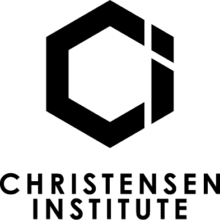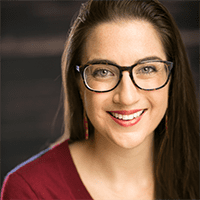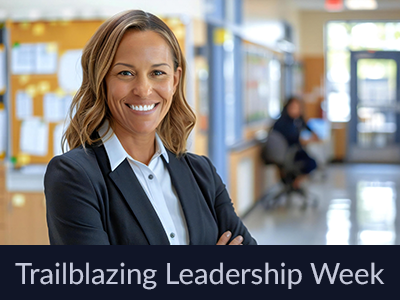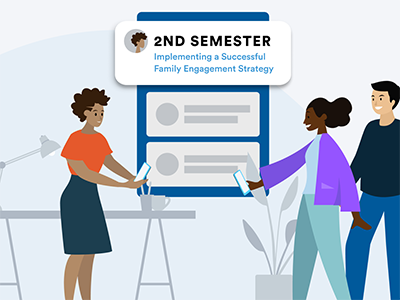
edWebinars
«Back to all edWebinars- This event has passed.
5 Steps for Building and Strengthening Students’ Relationships
Wednesday, May 26, 2021 @ 3:00 pm EDT - 4:00 pm EDT EDT

Presented by Mahnaz Charania, Ph.D., Senior Research Fellow, Education, The Christensen Institute; Julia Freeland Fisher, Director, Education Research, The Christensen Institute; and Kent Pekel, Ed.D., President and CEO, Search Institute
Sponsored by The Christensen Institute
Watch the Recording Listen to the Podcast
Closed captioning will be added to the recording within 2 weeks of the live presentation.
Get a CE Certificate for this edWebinar Learn more
Like discoveries washed ashore after a turbulent hurricane, the pandemic has exposed like never before both the importance of students’ social and emotional well-being and their need to equitably access supports in order for them to thrive socially and academically. This recorded edWebinar reveals strategies that build and strengthen students’ relationships to help ensure schools not only come back, but come back better in serving every student.
On May 4th, the Christensen Institute released a free, five-step playbook that distills decades of social capital research and cutting-edge practices from the field into a customizable roadmap that any K–12 or postsecondary leader can use to begin implementing the tools, metrics, and designs needed to ensure every student’s well-being and access to opportunity.
edWebinar viewers will understand not only the importance of students’ relationships to their personal, academic, and career success, but also how to incorporate intentional designs that reimagine students’ relationships as tangible outcomes to learning that far outlast one-time interventions. They’ll also discover strategies that help adults who work with young people become both intentional and inclusive in building developmental relationships with all youth. They’ll be introduced to the tools and tactics that could be implemented in standalone programming or courses. However, we’ll encourage viewers to treat relationship building as a system-wide goal, rather than a one-off effort reserved for only a few students.
This recorded edWebinar will be of interest to K-12 and postsecondary leaders, defined as any innovative practitioner spearheading initiatives on behalf of students.

Mahnaz Charania, Ph.D. is a senior research fellow at the Christensen Institute. A research psychologist by training, she studies how innovation theory can transform students’ learning environments and networks in ways that amplify equitable access to opportunities, particularly for traditionally under-resourced students. She is a highly regarded expert in measuring and evaluating the impact of innovative school practices. Prior to joining the Institute, Dr. Charania served as a public school district administrator, a director of social impact efforts within an independent school, and a consultant to federal and international agencies on translating evidence-based research to classroom practice. In her own words, “I believe an ecosystem of diverse thinkers and doers can attain powerful solutions to pressing problems. Our education systems must equip students to learn across differences and amplify their learning through real-world relationships in order to fully prepare them as informed, active citizens.”
Julia Freeland Fisher is the director of education research at the Christensen Institute. She leads a team that educates education and community leaders on the power of disruptive innovation in the K-12 and postsecondary spheres through its research. Her team aims to transform monolithic, factory-model education systems into student-centered designs that educate every student successfully and enable each to realize his or her fullest potential.
Julia is the author of Who You Know: Unlocking Innovations That Expand Students’ Networks. The book focuses on emerging tools and practices that radically expand who students know by enhancing their access to and ability to navigate new peer, mentor, and professional networks. Prior to joining the Institute, Julia worked at NewSchools Venture Fund, a venture philanthropy organization that supports education entrepreneurs who are transforming public education. Julia holds a bachelor’s degree from Princeton University and a JD from Yale Law School.

Closed captioning will be added to the recording within 2 weeks of the live presentation.
Join the Social-Emotional Learning community to network with educators, participate in online discussions, receive invitations to upcoming edWebinars, and view recordings of previous programs to earn CE certificates.







